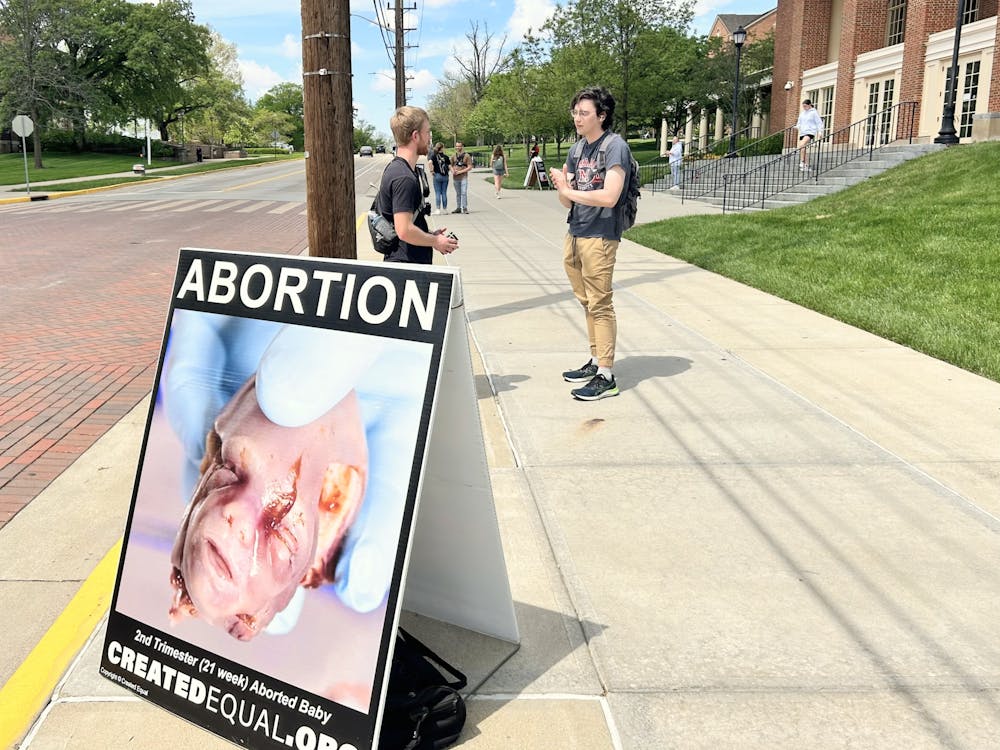College students across America are protesting, rallying and supporting activism movements on their campuses with threats of arrest looming over them. To do these acts of assembly, protesters on college campuses often rely on the First Amendment to support their actions, whether that’s holding up signs or more noticeable acts like encampments or volatile language.
Even though private universities can set their own rules and regulations surrounding speech and assembly, as a public university, Miami University must abide by the Ohio Revised Code, Campus Free Speech Policy and the First Amendment, which protects all speech, including hate speech.
According to the Campus Free Speech Policy, “It’s not the proper role of the university to attempt to shield individuals from free speech, including ideas and opinions they find offensive, unwise, immoral, indecent, disagreeable, conservative, liberal, traditional, radical or wrong-headed.”
The First Amendment protects speakers’ right to express their views and to assemble peacefully in protest. However, according to Miami’s website, a protest that causes material disruption or violence is not protected.
On Tuesday, April 30, Created Equal, an organization defending human equality, exercised its rights when the group set up a small activism event outside of Armstrong Student Center promoting an anti-abortion mindset.
Maggie Groover, a member of the organization based out of Columbus, Ohio, said they travel to different campuses, high schools and abortion clinics in Ohio to talk to people about abortion and what it does to preborn children.
“We want to speak specifically to college students because they’re the age group that gets the majority of abortions,” Groover said. “... We hope to share the truth with people and just have productive conversations today.”

"Created Equal" is based out of Columbus, Ohio, and travels to colleges around the country
Four signs were positioned on the corners in front of Armstrong, portraying graphic images of aborted fetuses. Stationed next to two of the signs were Miami University Police Department officers.
Kim Vance, the director of the center for student engagement, activities and leadership, came to the demonstration to ensure students knew they had university resources available if the stark images upset them.
“Unfortunately, the Constitution says you can say some pretty heinous stuff, [but] this is an institution of higher learning and part of what that is supposed to be is the exploration of different ideas and people being able to hold two thoughts in their head at the same time,” Vance said, “and if we can't have conversations about that here, if we can't let somebody say something that we might wholeheartedly disagree with, and listen to why they say it. We're not gonna get anywhere.”
Vance said no students approached her, but many walked by, looking perturbed by the images.
Enjoy what you're reading?
Signup for our newsletter
One of those students was Nathan Robles, a sophomore games and simulation major. He said the signs were intense, but he supports their right to assemble on campus.
“Activism on campus is very controversial because when you talk about it to a lot of other students, they'll kind of be dismissive about it or kind of deflect, especially if it’s something they don’t agree with,” Robles said, “... [but] I just feel like it all depends on approach and being peaceful about it.”




